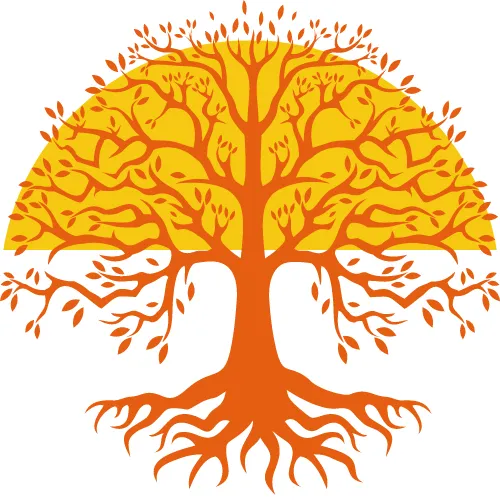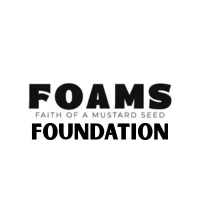WHO WE ARE
WHO WE ARE
Our Mission
To cultivate resilient and self-assured youth who realize their full potential.
Our Vision
To be a leading community organization in fostering youth confidence and success by promoting strong, healthy family relationships through knowledgeable, compassionate, and effective program delivery.
Our Mission
To cultivate resilient and self-assured youth who realize their full potential.
Our Vision
To be a leading community organization in fostering youth confidence and success by promoting strong, healthy family relationships through knowledgeable, compassionate, and effective program delivery.

Youth-Centered
Fostering youth success by providing personalized attention, tailored opportunities, and meaningful experiences to build confidence and achieve their goals.
Strong Families
Partnering to enhance and support healthy families, the essential foundation of our community.
Community Engagement
Actively connecting with communities to promote the well-being of today’s youth, who represent the future of our society's success.
Our Team Values

Prioritize Youth and Families – Concentration – Compassion – Organized Approach
• Give personalized attention and care to each youth, parent, family, and sibling to foster positive growth.
• Utilize data and compassion to understand and foresee the needs of our youth and families.
• Incorporate the well-being of youth and families into every decision we make.

Unite as One – Cooperative Effort – Positivity– Synergy
• Consistently collaborate to identify new growth opportunities and improve cost efficiency.
• Lead by example in taking calculated risks and encourage others to do likewise.
• Prioritize the overall well-being of Miami Bridge over individual departments or areas.

Choose, Commit, and Act – Focus on Action – Drive for Outcomes – Deliver Results
• Stay focused on core priorities and clearly define what we won't pursue.
• Streamline our processes by cutting out bureaucracy and removing barriers.
• Make decisions, commit fully, and take decisive action.

Express Opinions with Confidence – Listen Attentively – Seek to Understand – Show Respect
• Foster an environment where diverse opinions are welcomed and valued.
• Engage in active listening and demonstrate genuine curiosity.
• Share your insights and expertise openly.
• Respect and support decisions, even if they differ from your own views.

Committed & Diverse Team – Embrace Inclusion – Ensure Equity – Promote Fairness
• Hire and promote from within the organization.
• Assemble diverse teams and foster inclusive environments.
• Recognize individuals based on their performance and potential.
• Develop expertise and enhance capabilities.
• Ensure equal treatment for everyone.
• Use data and empathy to understand and anticipate the needs of our youth and families.
• Incorporate the needs of youth and families into every decision we make.

Operate with Integrity – The Core Principle of Our Organization – Everyone's Responsibility
• Consistently choose the right course of action.
• Conduct yourself with transparency and authenticity.
• Trust and empower others to achieve their best.

Celebrate Achievements – Acknowledge Contributions – Involve Everyone – Foster Happiness
• Foster a positive and supportive workplace.
• Create opportunities for fun and enjoyment.
• Express appreciation for each person’s contributions, whether large or small.
Our Team Values

Prioritize Youth and Families – Concentration – Compassion – Organized Approach
• Give personalized attention and care to each youth, parent, family, and sibling to foster positive growth.
• Utilize data and compassion to understand and foresee the needs of our youth and families.
• Incorporate the well-being of youth and families into every decision we make.

Unite as One – Cooperative Effort – Positivity– Synergy
• Consistently collaborate to identify new growth opportunities and improve cost efficiency.
• Lead by example in taking calculated risks and encourage others to do likewise.
• Prioritize the overall well-being of Miami Bridge over individual departments or areas.

Choose, Commit, and Act – Focus on Action – Drive for Outcomes – Deliver Results
• Stay focused on core priorities and clearly define what we won't pursue.
• Streamline our processes by cutting out bureaucracy and removing barriers.
• Make decisions, commit fully, and take decisive action.

Express Opinions with Confidence – Listen Attentively – Seek to Understand – Show Respect
• Foster an environment where diverse opinions are welcomed and valued.
• Engage in active listening and demonstrate genuine curiosity.
• Share your insights and expertise openly.
• Respect and support decisions, even if they differ from your own views.

Committed & Diverse Team – Embrace Inclusion – Ensure Equity – Promote Fairness
• Hire and promote from within the organization.
• Assemble diverse teams and foster inclusive environments.
• Recognize individuals based on their performance and potential.
• Develop expertise and enhance capabilities.
• Ensure equal treatment for everyone.
• Use data and empathy to understand and anticipate the needs of our youth and families.
• Incorporate the needs of youth and families into every decision we make.

Operate with Integrity – The Core Principle of Our Organization – Everyone's Responsibility
• Consistently choose the right course of action.
• Conduct yourself with transparency and authenticity.
• Trust and empower others to achieve their best.

Celebrate Achievements – Acknowledge Contributions – Involve Everyone – Foster Happiness
• Foster a positive and supportive workplace.
• Create opportunities for fun and enjoyment.
• Express appreciation for each person’s contributions, whether large or small.
Achieving success requires effort, determination, ongoing learning, sacrifice, and, most of all, a genuine love for what you’re doing.
Achieving success requires effort, determination, ongoing learning, sacrifice, and, most of all, a genuine love for what you’re doing.
History of The Faith of a Mustard Seed
Foams was established in 2024, by Donald Brown, who is a pioneer in the Carson Community. My family moved in the City of Carson in 1971. I graduated from Carson High School in 1982. I attended the University of Oregon and graduated with a Bachelor's Degree. As a child I made up my mind that I would have my own business and work for myself. My first business was a Cellular Phone Shop in the City of Riverside.
After that was successful, I opened up a Book Store in the City of Carson, from there sprouted up a Beauty Salon and Barbershop all in the same Center. After Years of business doing well, I ventured into the fashion industry and started my own clothing line called DuMaurier Clothing, that lead me to the Music Industry where I financed the artist called Lil John, which led me to open a Music Studio where i got involved with many other artist. I always found myself helping out other people, find their way through the hostile environment we call life, because with the wrong guidance life can become difficult. After years went by I seen other people that I knew that had non-profit organizations and I told with the things you do in your community and the people you help. You need to start a
non-profit organization and get funding instead of using your own finance which would make things easier and
I could really help more people. After nights of thinking and doing a little research I found it would be suitable for me if I'm going to continue down the road to become a Humanitarian so I came up with FOAMS, (acronym for Faith Of A Mustard Seed) because if you have the Faith Of A Mustard Seed, you can do anything you put your mind to.
My staff and I are here to take the children and young adults to accomplish their dreams, by preparing Mentally, Psychologically, and Physically to conquer any obstacles in their paths to success.
History of The Faith of a Mustard Seed
Foams was established in 2024, by Donald Brown, who is a pioneer in the Carson Community. My family moved in the City of Carson in 1971. I graduated from Carson High School in 1982. I attended the University of Oregon and graduated with a Bachelor's Degree. As a child I made up my mind that I would have my own business and work for myself. My first business was a Cellular Phone Shop in the City of Riverside.
After that was successful, I opened up a Book Store in the City of Carson, from there sprouted up a Beauty Salon and Barbershop all in the same Center. After Years of business doing well, I ventured into the fashion industry and started my own clothing line called DuMaurier Clothing, that lead me to the Music Industry where I financed the artist called Lil John, which led me to open a Music Studio where i got involved with many other artist. I always found myself helping out other people, find their way through the hostile environment we call life, because with the wrong guidance life can become difficult. After years went by I seen other people that I knew that had non-profit organizations and I told with the things you do in your community and the people you help. You need to start a
non-profit organization and get funding instead of using your own finance which would make things easier and
I could really help more people. After nights of thinking and doing a little research I found it would be suitable for me if I'm going to continue down the road to become a Humanitarian so I came up with FOAMS, (acronym for Faith Of A Mustard Seed) because if you have the Faith Of A Mustard Seed, you can do anything you put your mind to.
My staff and I are here to take the children and young adults to accomplish their dreams, by preparing Mentally, Psychologically, and Physically to conquer any obstacles in their paths to success.

